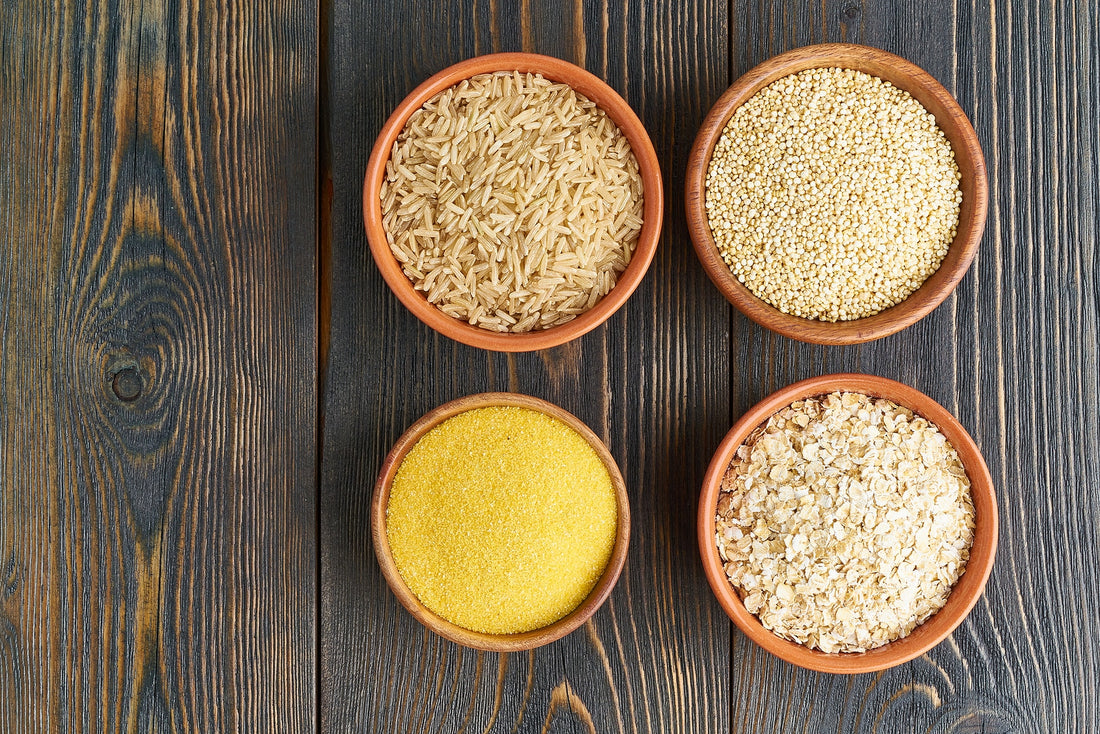To eat or not to eat… that is the question.
Lectins are a health topic that’s growing in popularity, but you may have heard conflicting advice about them.
For example, certain diets like the Gundry diet or the Paleo diet claim that avoiding lectins can help with weight loss, inflammation, and chronic illness.
Is that true? There isn’t a ton of evidence to support these specific claims, but we do have research on how lectins affect our bodies. Some research has found that the lectins found in plants have the potential cancer-fighting properties (12).
So which is right – are they bad or good?
The answer isn’t always cut and dry. It may just depend on what works for you. And if you’re among those who experience the negative aspects of lectins, there is a solution.
We’re highlighting the powerful nature of KaraMD Lectin Guard - an all-natural supplement that helps your body enjoy food once again, without the discomfort of lectin buildup.
What are Lectins?
Lectins are a family of proteins that bind specifically to carbohydrates when ingested (1). While these compounds are found in just about every type of food, the ones with the highest amounts include:
- Whole wheats
- Kidney beans*
- Soybeans*
- Peas*
- Lentils*
- Peanuts*
- Cucumbers
- Eggplant
*Note that these foods contain higher levels of lectin when in their raw, active state.
Why Are Lectins A Problem?
The biggest reasons lectins are a health concern are because these proteins have been shown to prevent you from absorbing certain nutrients (2), such as calcium, iron, zinc, or phosphorus. This could contribute to a growing phenomenon called leaky gut syndrome, which could lead to increased risk for an autoimmune disease (3).
Those who consume high amounts of lectins might also experience unpleasant side effects (4), like:
- Abdominal pain
- Gas
- Nausea
- Bloating
- Diarrhea
- Vomiting
For these reasons, medical professionals and wellness companies have determined to find a way to address this very issue. And while it’s impossible to avoid lectin completely, there are dietary supplements you can take to help lessen the effects.
But what makes KaraMD’s Lectin Guard so effective?
The secret is in the herbal recipe. These specific plant ingredients contain elements that counteract and prevent lectins from causing continual stomach upset.
Ingredients such as…
Slippery Elm Powder
For centuries, the inner bark of the slippery elm tree has been used to treat throat and digestion concerns (5). When mixed with liquid, it forms into a mucus-like substance, coating the lining of your gut. Because of this mechanism, it’s used to help keep the lectins from attaching to your digestive lining.
You can get the full scoop on slippery elm here (10).
Bladderwrack Powder
Along the Atlantic and Pacific coasts, groups of green and brown seaweed sway slowly back and forth. One brown seaweed variety, called Bladderwrack, contains anti-inflammatory properties and a host of other nutrients (6) that can help soothe inflammation in the digestive tract. It can also block lectin activity.
Okra Fruit Powder
You may not have been a fan of okra growing up, but there's a good reason to change your mind now. Okra fruit is filled with polysaccharides, which bind to lectins (7) and keep them from causing inflammation. They also are known to have high amounts of Vitamin A and C, powerful antioxidants that help keep you free of damaging oxidative stress.
Sodium Alginate Powder
This ingredient is extracted from brown seaweed as well. In addition to being used for wound healing, research finds it also sticks to lectins (8).
Additional Wholesome Ingredients
Other fruit powders, like kiwi and papaya fruit powder, contain elements that encourage the production of mucin (9). This gooey substance helps form a protective barrier in the digestive tract, preventing lectin and other harmful substances from latching on.
In Summary
Different foods offer different nutrients, each playing an important role in your overall health. Many plant foods are high in fiber, and some contain proteins called lectins. When consumed raw, these foods can cause bloating, gas, and abdominal discomfort. In more extreme cases, nausea, vomiting, or diarrhea may occur.
Lectins have been an interesting topic for a while now, with more research to be done. So far, studies reveal that lectins have the ability to keep you from absorbing certain minerals. This can cause problems down the road, leading to leaky gut syndrome and autoimmune disorders.
The good news is, there is a way to effectively deal with lectins. Soaking raw beans and lentils before cooking them can help reduce the amount of sugars that lectins attach to.
Watching what you eat can help, but foods are meant to be enjoyed. That’s why taking a supplement that reduces the negative effects of lectins might be a good choice.
See why people are raving about KaraMD Lectin Guard (11).
References & Disclaimers
1. https://www.sciencedirect.com/science/article/abs/pii/S0041010104001916
2. https://www.ncbi.nlm.nih.gov/pmc/articles/PMC7600777/
3. https://www.ncbi.nlm.nih.gov/pmc/articles/PMC1115436/
4. https://www.hsph.harvard.edu/nutritionsource/anti-nutrients/lectins/
5. https://www.ncbi.nlm.nih.gov/pmc/articles/PMC6065514/
6. https://www.ncbi.nlm.nih.gov/pmc/articles/PMC6117670/
7. https://pubmed.ncbi.nlm.nih.gov/7873558/
8. https://www.mdpi.com/2076-3417/11/24/11818/htm
9. https://www.sciencedirect.com/topics/medicine-and-dentistry/mucin
10. https://karamd.com/blogs/health/slippery-elm-what-is-it-and-how-can-it-help-you/
11. https://karamd.com/products/lectin-guard
12. https://www.ncbi.nlm.nih.gov/pmc/articles/PMC7245692/
✝✝This noted statement is based on independent research and is not necessarily the opinion of the author
